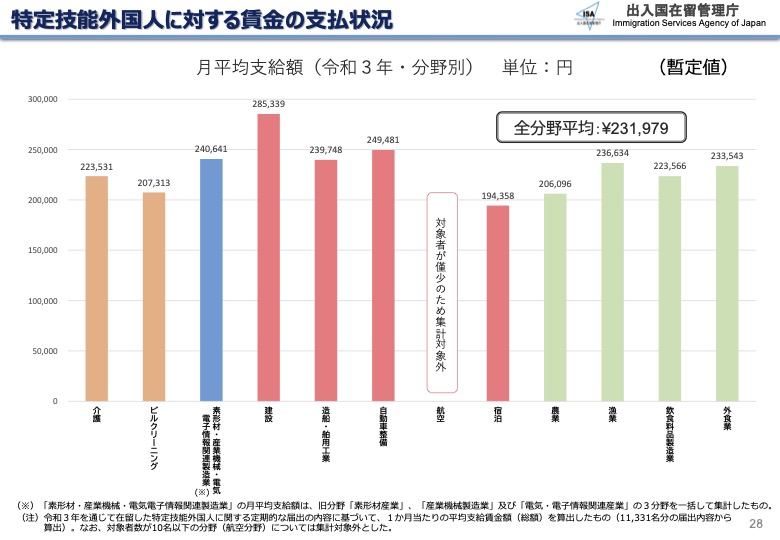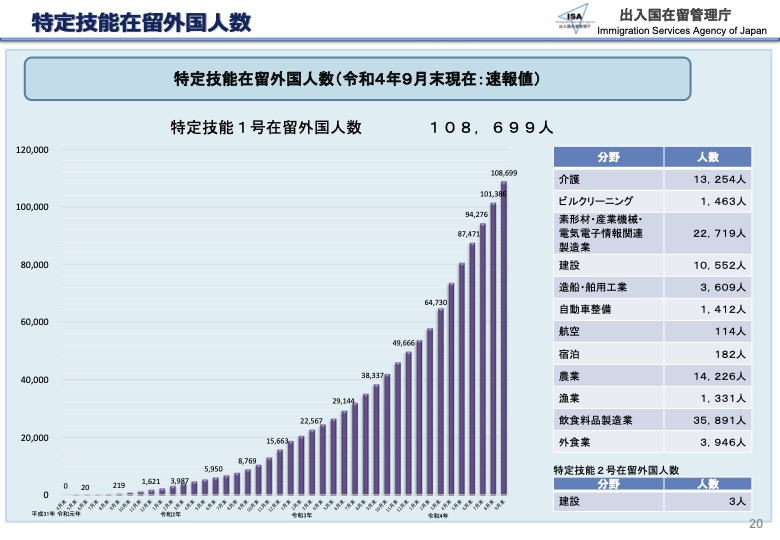Information for workers with a Specified Skilled Worker qualification
This page provides information on jobs available for those with a Specified Skilled Worker qualification, including salary, current number of workers, and job details, to help in job selection.
Specific Skills Test
The 12 industries where you can work with a Specified Skilled Worker qualification are listed below.
- Nursing
- Building Cleaning
- Manufacturing (machinery metal processing, surface treatment, electrical and electronic assembly)
- Construction (civil engineering, building, utilities, and equipment)
- Shipbuilding and marine industries (welding, painting, ironworking, finishing, machine processing, electrical assembly)
- Automobile Maintenance Industry
- Aviation (ground handling, aircraft maintenance)
- Accommodation
- Agriculture (crop farming, livestock farming)
- Fisheries (fishing, aquaculture)
- Food and Beverage Manufacturing
- Food Service Industry
Job details
Nursing
Care work supports daily life for older adults and people with disabilities. Main tasks include help with meals, bathing, toileting, mobility, health checks, medication management, and daily support.
Building Cleaning
Building cleaning involves cleaning offices and commercial facilities. Tasks include floors, windows, restrooms, and waste collection/disposal. Strict hygiene keeps spaces safe and comfortable. As an SSW field, advanced cleaning skills and efficient work are needed, enabling work in Japan’s building maintenance industry.
Average Salary
At the recent 'Expert Meeting on the Direction of Technical Intern Training and Specific Skills Systems', the first meeting's materials were provided, revealing data on the salary payments to foreign workers with specific skills.
According to this data, as of the third year of Reiwa, the average monthly salary across all industries was ¥231,979, with the construction industry showing the highest average salary of ¥285,339.
Labor Population by Occupation
The number of foreign nationals with Specific Skill visas in Japan has dramatically increased from just a few to 108,699 from the first year of Reiwa to September of the fourth year. This trend indicates that Japan is actively accepting foreign workers in various fields.
About 100,000 people are working in Japan under the Specific Skill residency status across all industries. The food and beverage industry employs the most people, with a maximum of 35,891 working in it. The next most numerous are the 22,719 working in the materials, industrial machinery, and electrical and electronics information related manufacturing industries.
These numbers show that Japan's labor market is expanding for foreign workers, offering new opportunities.
For foreigners considering building a career in Japan, this represents a significant opportunity.

